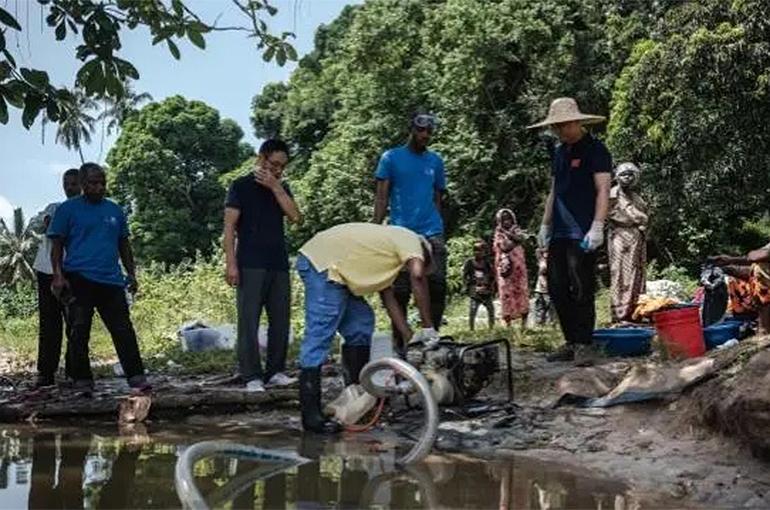 Chinese Efforts to Stamp Out Snail Fever in Tanzania Show Results
Chinese Efforts to Stamp Out Snail Fever in Tanzania Show Results(Yicai) April 12 -- A Chinese project to help Tanzania reduce the incidence of schistosomiasis, a type of parasitic disease that can be fatal, is bearing fruit.
The morbidity rate of schistosomiasis, also known as bilharzia or snail fever, in a demonstration zone of the first phase of the project on Pemba Island has dropped to less than 1 percent from almost 9 percent in three years, project management told Yicai. After the first kick-off in 2017, the second phase of the project debuted last May. The team plans to build facilities in vulnerable communities to secure residents' access to clean water.
Bilharzia is caused by parasites that are carried by freshwater snails that come into contact with people through the skin when swimming, bathing, or fishing. The symptoms include fever, abdominal pain, and rashes.
Snail fever is the second-most common parasitic disease in the world after malaria, affecting 230 million people while over 95 percent of such infections take place in Africa. Despite years of mass-scale drug distribution to fight the disease, it has been hard to eradicate.
Pemba Island is the second-largest island in Zanzibar, a semi-autonomous province in the East African country. The island, which has many rivers with a lot of snails as well as nearly 600,000 residents, used to struggle with a high number of cases.
Preventing and treating schistosomiasis is not only the duty of healthcare authorities as it also calls for the participation of education, water conservancy, agriculture and forestry officials to work together for a joint goal, Huang Yuzheng, an expert from a center under the Jiangsu Institute of Parasitic Diseases who leads the Chinese team in Tanzania, said to Yicai.
Teenagers are at high risk of bilharzia so educators need to tell them to avoid contact with contaminated water, Huang said. Moreover, other authorities need to construct bridges and roads so kids do not need to cross bodies of water to go to school, the expert added.
Saleh Juma Muhammed, the executive in charge of the island's prevention force of tropical diseases, said that he has learned a lot from the Chinese team and that the experience will also be useful in preventing and treating other tropical diseases such as malaria.
Editor: Emmi Laine